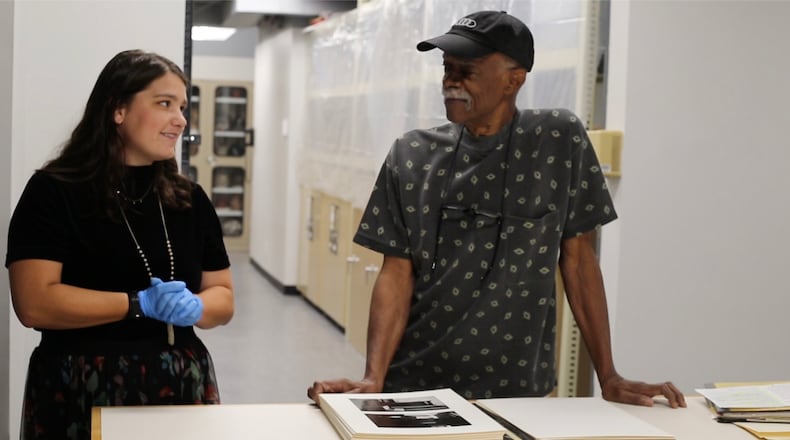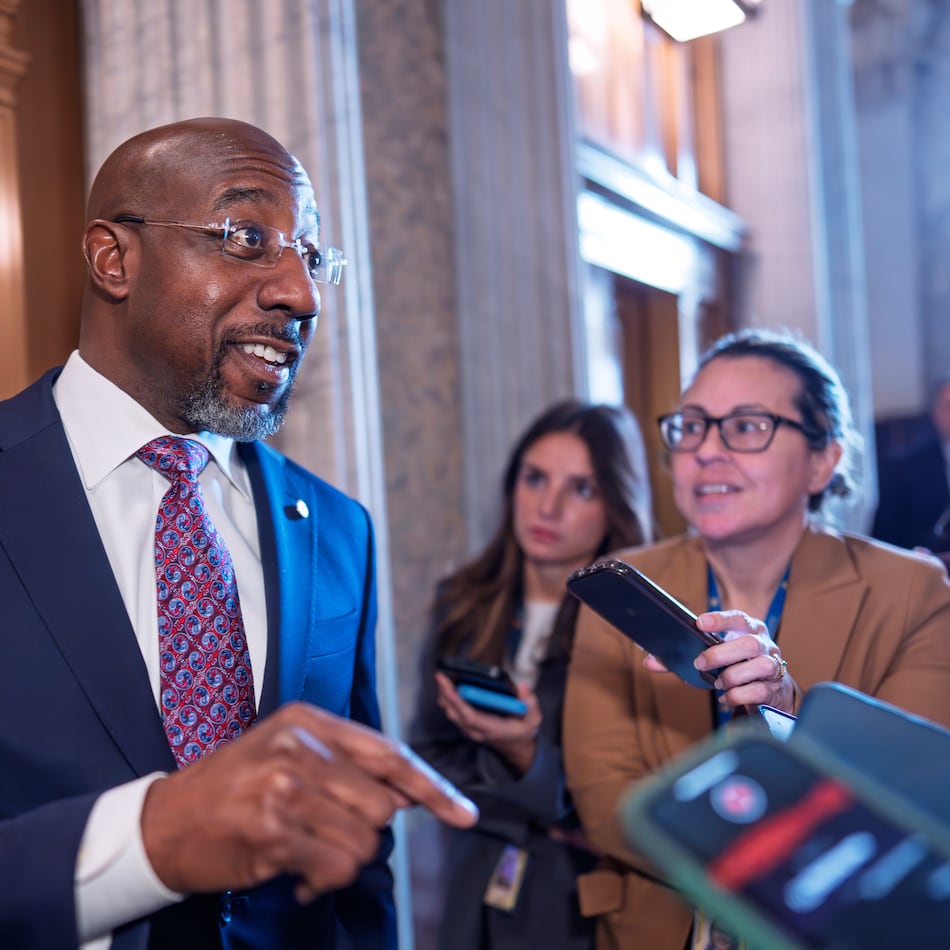Celebrated Atlanta photographer Tom Dorsey has spent the past 16 years mentoring teen boys in underserved neighborhoods, telling them they can overcome their life circumstances and reach their full potential.
Now drawing from his portfolio, he can show them that anything truly is possible.
Dorsey’s never-before-exhibited photos of his childhood neighborhood on Chicago’s West Side are at the Emory University Michael C. Carlos Museum through July 16.
“A Very Incomplete Self-Portrait: Tom Dorsey’s Chicago Portfolio” displays black-and-white photographs taken in 1971 by Dorsey when he was a student at the Art Institute of Chicago. At the time, the artist was in his mid-30s, married with two children. He had dabbled in the music business and with cameras but had not started his photography work.
Dorsey is in his mid-80s and retired but is still widely known for his intimate portraits of African American families in their homes in Chicago and Atlanta. He photographed Atlanta’s Black leaders in civil rights, business and politics for over three decades. The exhibit photos, however, show the bleakness of poverty in the underserved community where he grew up.
Dorsey said he returned to his old neighborhood and purposely used black-and-white film to document the streets, houses and buildings. He wanted them to look isolated and cold, like the environment he remembered.
“I did not grow up understanding my young life or feel like I was understood by those around me, which left me confused,” Dorsey said. “The photographs were my attempt, at that point, to save, in a visual form, my feelings for interpretation later in life.”
Dorsey said he always felt alone and misunderstood growing up, which he attributes to a head injury he suffered in childhood. He dropped out of high school at age 17 and went into the Air Force, decisions he says saved his life by getting him out of the neighborhood.
The photos were personal to Dorsey and show intimate details of structures that formed his early memories. There’s the view of an alley behind his apartment that was his playground as a child, his high school with an abandoned car on its campus, and Frank’s, a Jewish grocer where his family bought all their food.
In a self-portrait, a young Dorsey stands behind his motorcycle in front of the apartment he shared with his wife, Carolyn, and their two children. Swooping down in the photo is a clothesline with garments drying in the sun. Dorsey said that was standard; the family didn’t have a dryer then.
Credit: spec
Credit: spec
The photos were lost in time until museum curators expressed interest in the historical documents of 1971 Chicago. Dorsey donated the portfolio to the museum, hoping others might find the images useful.
“I agreed to this because what those photos represent could be a positive influence in the lives of others,” he said. “It represents what others can potentially do.”
Anna Clark, a 2022 Andrew W. Mellon Summer Intern at the Carlos Museum, worked with curator Andi McKenzie to develop the exhibit. She met with Dorsey several times, listening and recording his memories of the area and how his career took off in portraiture, music composure and recording.
“Tom’s ability to capture the isolation that he experienced as a child, returning to photograph the neighborhood many years later, at once highlights the potential for creativity and the ever-present resiliency that can be found in these environments,” Clark said.
Dorsey said he hopes the photos will help to attract volunteers for his Brother2Brother (B2B) a mentoring program with the Atlanta Public Schools. He mentors nine Douglass High School Ninth Grade Academy students this year and would like more men to help with the program. Dorsey said the needs are more significant post-pandemic.
MORE DETAILS
“A Very Incomplete Self-Portrait: Tom Dorsey’s Chicago Portfolio” can be seen through July 16 at the Emory University Michael C. Carlos Museum, 571 S. Kilgo Circle NE, Atlanta. carlos.emory.edu
For more information about Brother2Brother mentoring, contact Douglass High School Ninth Grade Academy at 404-802-3100.
About the Author
Keep Reading
The Latest
Featured



